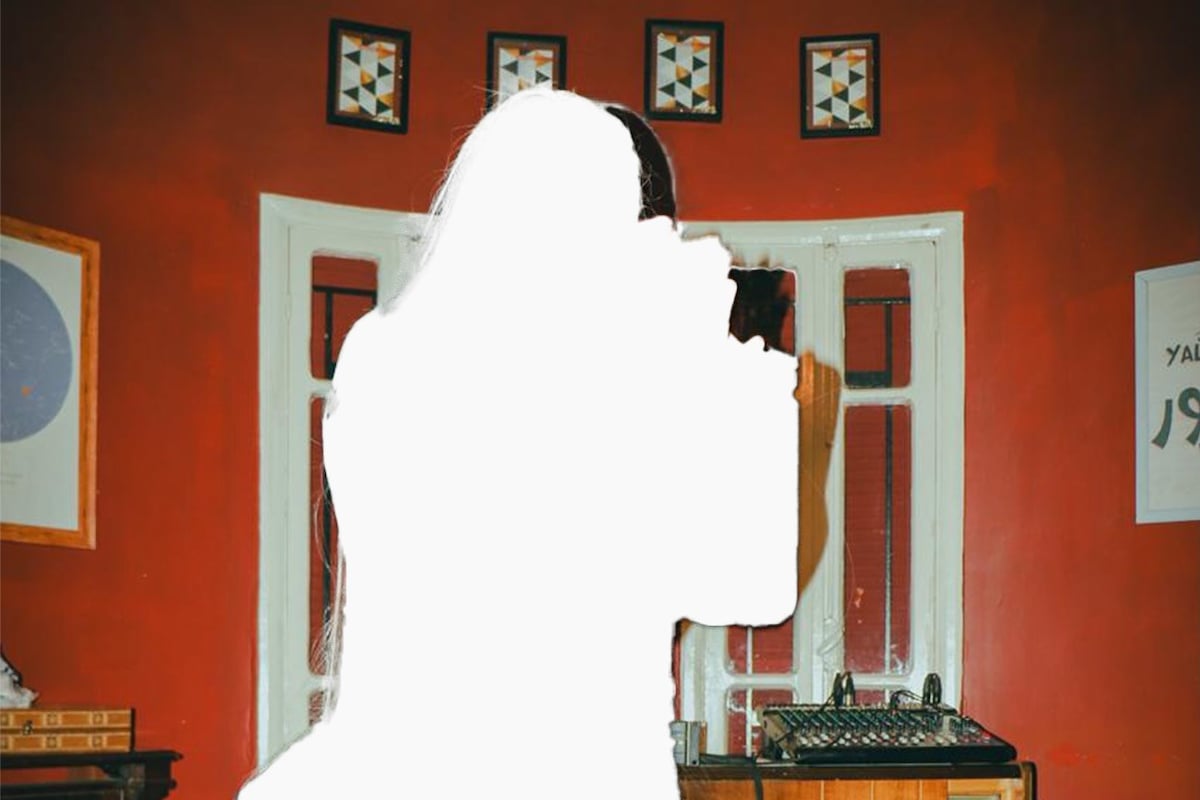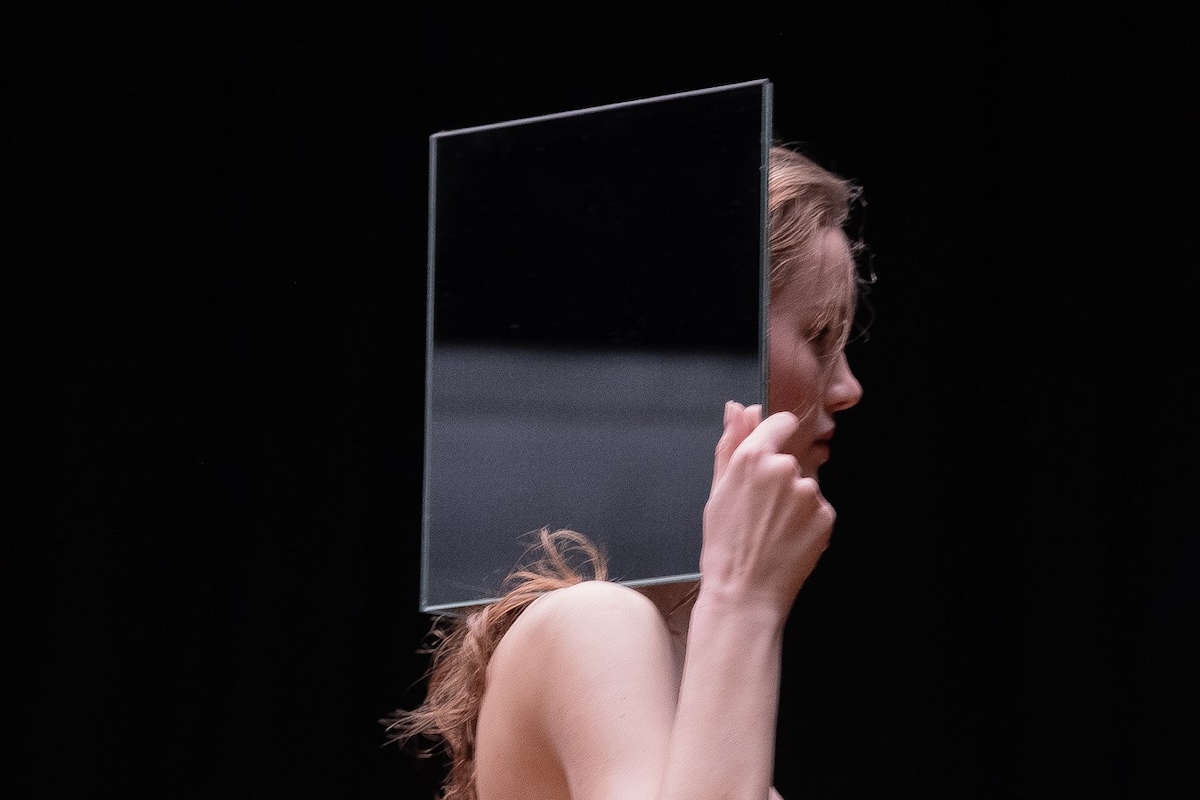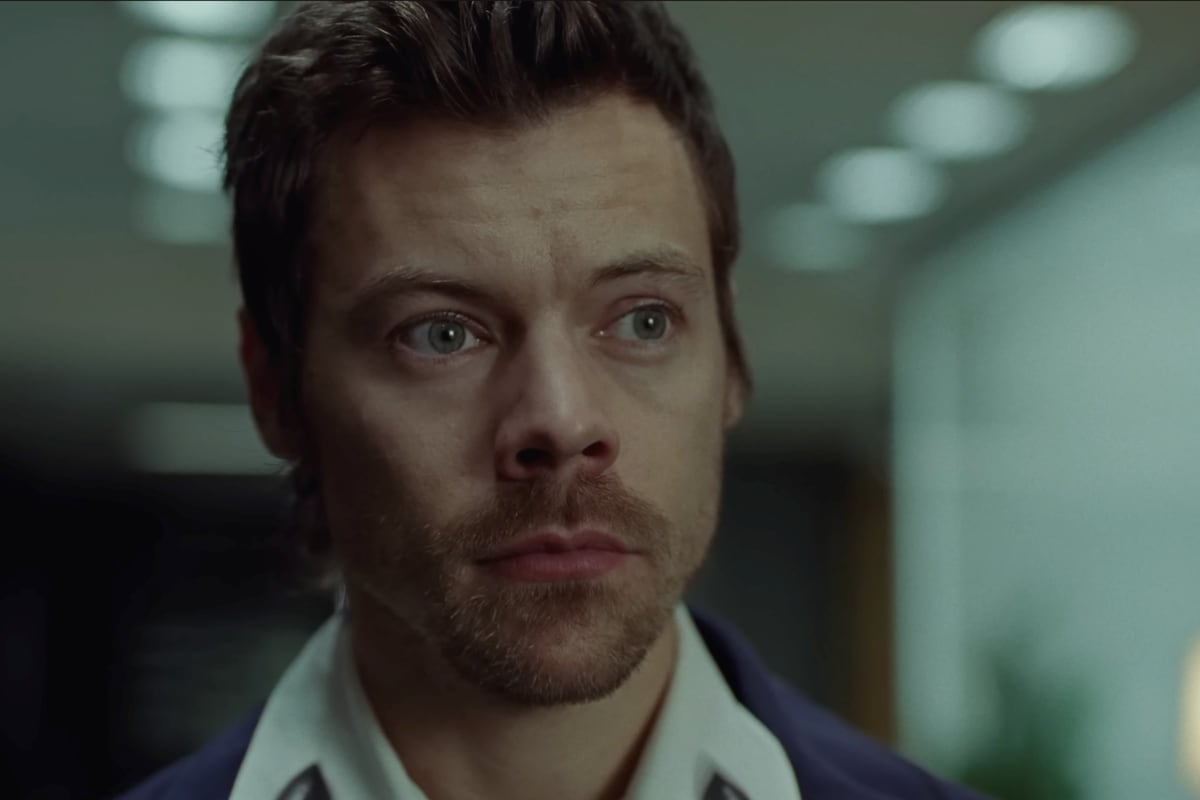This article is taken from issue 02 of Dazed MENA:
In 2017, Mashrou’ Leila performed one of the best shows it has ever played before an audience of 35,000 people. It was a September night, and the air in Cairo smelled of hope. Hamed Sinno, lead singer, recalls what made this concert special: the audience was singing along with every word so loudly that the band couldn’t hear itself play.
At one point during the concert, Sarah Hegazy and Ahmed Alaa, carefully carried on their friends’ shoulders, waved a colourful flag that symbolised unity, joy and, most importantly, life. Rejoicing in pride, the crowd cheered. Witnessing its mere presence in public that night was the work of dreams. For one moment, what awaited beyond the concert grounds ceased to exist – lifetimes of policing, erasure, and exclusion shied away in the face of the fulfilled promise of visibility. For once, we saw each other, and we weren’t hiding. For once, the world was unabashedly and fearlessly ours.
While time was suspended in that moment, it wasn’t graceful enough to last forever. Our joy is too abundant to be contained, often misconstrued and misrepresented as a threat against fragile morality. Over the following week, 75 people were arrested, Hegazy included. Visibility comes at a cost, one that she cruelly had to pay for. Hegazy was imprisoned and tortured for three months – what she represented was our homeland’s worst nightmare, let alone her ability to celebrate it. She was eventually granted political asylum in Canada.
In Undrowned: Black Feminist Lessons from Marine Mammals (2020), author Alexis Pauline Gumbs traces the disappearance of a giant sea mammal (Hydrodamalis gigas) native to the Bering Sea. Within 27 years of its ‘discovery’ by a German naturalist in 1741, the entire species went extinct over its fur and sealskin. “So she knows what we know,” writes Gumbs. “It is dangerous to be discovered.”
We know that intimately. To be found is to be known. To be known is to be traced. To be traced is to be captured. I’ve always been troubled by visibility, contemplating its boundless gifts, yet dreading its deadly cost. What felt more intuitive was something beyond a Western understanding of visibility, a sense beyond aesthetics and being neatly labelled, packaged, and easily found and consumed. What brought me closer to home is rooted in anonymity, which cannot be confused with shame.
Aya El Sharkawy, a Cairo-based anthropologist and writer, was standing with thousands of people in that crowd. The concert and the following attacks were a turning point for her. “It made me rethink celebration, western symbolism, and the politics around ‘outness’ and safety,” she tells Dazed MENA. “I reject labels – they’re western, consumerist, and a tool to make it easier for algorithms to find and govern us.”
How do we find each other? How do we bask and celebrate each other’s light without these looming threats? As Eric Stanley, an associate professor in the Department of Gender and Women’s Studies at UC Berkeley, asks, “How can we be seen without being known, and how can we be known without being hunted?”
We’re actually exceptional at that. That’s why we will never go extinct. Alaa and Hegazy reminded a world overlooking us that we were still there, joyous and glorious. We carve spaces in every realm and every city, from Cairo to Beirut to Riyadh, to find and be with each other. In spite of our material conditions, we innovate language and ways of celebration, creating generational networks of care and protection in the process. We cultivate these spaces and parties in our bedrooms, apartments, bars, and clubs, finding in our companionship a sense of safety that withstands attacks and raids. They’re not “underground”, “alternative”, “hidden”, or “secret” – they are spaces imagined, designed, and sustained by and for us.
“Drag gave me a second chance at self-love after the things I have been through for my ‘difference’, It made me shrink less and have control over my own life” – Tante Faguette
El Sharkawy explains that being part of these parties feels like stepping into a pocket outside of time and space. “It’s like hiding under bed sheets when I was a little kid. It is a community – food, laughter, and joy.” And for these spaces to exist, we define what their safety looks and feels like. “Safety is when I’m not checking where the walls meet the ceiling for cameras. Safety is when I don’t have to look over my shoulders. Safety is when I don’t have to delete my most valuable memories as I wait in line for a police checkpoint.” she says. “Safety is writing under my own name without having nightmares for years to follow. Safety is not jolting away from touch when I hear footsteps or keys in the doorknob. Safety is community, sobriety, and sunset from my balcony.”
To Ms Anamir, a Riyadh-based drag queen, safety is also simply existing. Her apartment was one of the spaces where she could rub the demons of policing off her without ever looking back. It’s where her drag mother, Tante Faguette, introduced her to the magic of drag. “I was stuck in endlessly confusing thoughts about my identity when my drag mom came into the picture,” says Ms Anamir. “She truly changed everything for me and introduced me to the possibilities of drag. It woke up a part of myself that had been quiet for a long time.”
Tante Faguette, a Riyadh-based drag queen and party hostess, has always been fascinated by the transformative power of drag. “Even when I was nine and ten, I’d try to convince my female cousins to play make-believe where I could wear their dresses,” she says. A self-taught artist, she crafted her drag style through closely watching hours of makeup tutorials, experimenting with different silhouettes using pads and corsets, and playing around with different colours. “When she’s in drag, she goe[s] all out, as much as [her] budget allows,” observes Ms Anamir.
This process was years in the works. Tante Faguette struggled to embrace her femininity without getting caught, bullied, or assaulted. But the safety of her own space was the catalyst she needed. “It gave me a second chance at self-love after the things I have been through for my ‘difference’,” she says. “Drag made me shrink less and have control over my own life.”
For the past few years, Tante Faguette has been hosting viewing parties for RuPaul’s Drag Race at her apartment. She has hosted Halloween parties, during which she lends her wigs, dresses, and heels to her friends. “I always asked my friends to let me put them in drag,” she says. “I knew if they tried it, they’d be astonished by the liberation and self-love that comes after.”
“We had to stop doing drag for a while. We had to hide. We stopped our shows for a really long time because we wanted our crowds to be safe. We did not want to put anyone in danger” – Aniss Ezzeddine
On the outskirts of Riyadh, away from the eyes of the city and its inhabitants, Ms Anamir celebrated her birthday and performed with Tante Faguette. They were surrounded by around 60 people, friends and kin. “It was healing. I felt liberated and euphoric. I was finally allowed to be loud and soft and powerful all at once,” she reflects. “Drag gives me access to a side of myself that doesn’t get to exist during the day.” This was the biggest audience they’ve ever performed to. “Adrenaline went through me,” adds Tante Faguette. “Being in drag suddenly gave me the power that I needed.”
This hasn’t always been the case in Riyadh, though. And to a large extent, it is still not. While the city is buzzing with celebrations for our weddings or beauty pageants for our drag queens, authorities are always around the corner. Tante Faguette reveals that many events have been raided by the police, resulting in the arrest of a party host she personally knew. Yet, she still gathers and celebrates with her community. “The duality of our lives can be draining, but I do somehow find power in how our people are great protectors of themselves,” she says. “From an early age, we have acquired the skills to be alert and run to rescue whenever danger is around. We tend to celebrate pride we see elsewhere because it is ‘legal’. However, it’s important to also acknowledge pride that is resourceful, safe, and times behind locked doors. That’s power.”
This power exists among us across borders and surveillance states. In August 2023, Om, a bar in the lively neighbourhood of Mar Mikhael in Beirut, hosted two prominent drag queens at the frontier of Lebanon’s drag scene: Latiza Bombé and Emma Gration. But the night of joy didn’t last long and was soon interrupted. Jnoud al-Rab, Arabic for ‘Soldiers of God’, attacked the venue and terrorised the performers and crowd. Even after the attack, members of the extremist Christian group came back to the bar, threatening to bring it to the ground. Their reasoning? “[The drag queens] don’t have the right to promote deviance, children could have seen them.”
The attacks and threats went beyond the performers that night – it extended to all the drag queens pushing boundaries and cultivating what once used to be a blossoming drag scene in Beirut. Aniss Ezzeddine, a Beirut-based educator, designer, and drag queen known as Anissa Krana, received death threats. The group knew what Ezzeddine and other queens looked like – in and out of drag – and threatened to chase them around the city, making them think twice before performing again. “We had to stop doing drag for a while. We had to hide,” recollects Ezzeddine. “We stopped our shows for a really long time because we wanted our crowds to be safe. We did not want to put anyone in danger. These are friends and allies and supporters.”
“Deep inside, I know I’m not doing anything wrong. My parents know I do drag. They support me. So why the hell should I be afraid of performing?” – Aniss Ezzeddine
While still shaken from the attacks, a scene rooted in resisting arbitrary social norms and expectations inevitably came back to life again. Led by Sandra Melhem, an activist and owner of multiple queer bars and clubs in Beirut, the performers started conversations and organised themselves to push back. “All drag queens in Beirut gathered to put rules for us to be safe and protect our audiences,” says Ezzeddine. “For example, no talking about religion, no posting anything provocative on social media, no mention of any political party.”
To be safe, then, we have to walk on eggshells, shrinking ourselves enough as not to trigger the fragile beliefs and affiliations of individuals or authorities that are easily disrupted by some fabric and makeup.
Ezzeddine always centred education in his performances. After dabbling in drag during college, he asked himself, “How can I make this helpful to other people as well? How can I use my platform to help others?” That’s why he stopped performing after the attack, dedicating his career to helping others instead. Putting them at risk, despite the boundless joy it brought all of them, was never a question. “If you asked me if I could do a drag show the next day [of the attack], I would’ve said yes,” he reflects. “Deep inside, I know I’m not doing anything wrong. My parents know I do drag. They support me. So why the hell should I be afraid of performing?”
Our visibility, or lack thereof, isn’t solely tied to our personal safety – it extends to concerns for anyone rooting for and supporting us in any capacity or proximity.
To the world’s surprise, we’re not a monolith. What deprives us of safety isn’t necessarily our families or communities. In many cases, they’re actually our biggest supporters. Whenever Zaheer Suboh ( known as Subeaux), a San Francisco-based DJ and producer, attended a party in Ramallah, his concern wasn’t his family finding out. “Our daily threat is much more centred around colonisation than family,” says Suboh. “The threat of death at the hands of Israel is far more present or more realistic. Growing up in Palestine, I was far more afraid of dying at a checkpoint than being the victim of honour killing.”
“Our daily threat is much more centred around colonisation than family… Growing up in Palestine, I was far more afraid of dying at a checkpoint than being the victim of honour killing” – Zaheer Suboh
Suboh doesn’t deny that outness remains a risk, but what he observed while attending such celebrations is that everyone is in it together, as a unit—we’re all experiencing and facing whatever consequences they create collectively. “As an attendee [at parties in the west], I feel disconnected from the rest of the audience,” admits Suboh. “But in Palestine, when I go to a party, even if you know one person, you will know everyone.” That’s why they feel safe to him. “There is a level of accountability interconnectedness, where you’re not invited unless you know someone,” he explains. “You’re not invited unless you’ve been vetted or somebody has vouched for you.”
This is not meant to create yet another binary between west and east, but Suboh’s experience is evidence of how our community shifts priorities based on geography. While being an active organiser and host for many spaces to bring our people together to dance and celebrate in California, specialising in Palestinian house music, Suboh believes that western spaces do not have the immediate, physical, and palpable threat of a common enemy to rally people around because “the enemy feels so nebulous”.
This creates a sense of disconnect he previously touched upon, forcing people to be in community with those who they can only relate to based on visual cues or labels, which is not the case for our spaces in Palestine or other neighbouring cities. “Stepping into one of our parties at home feels like being in an ethereal microcosm. This party becomes a pocket universe,” Suboh says. “You’re aware of everything on the outside, but, for this moment, it doesn’t matter as you’re sharing your community’s joy, love, and effervescence.”
Three years after her forced exile, Hegazy was found dead in her Toronto apartment in June 2020. Her suicide note read: “To my siblings, I tried to find redemption and failed, forgive me. To my friends, the experience [journey] was harsh and I am too weak to resist it, forgive me. To the world, you were cruel to a great extent, but I forgive.”
Hegazy was graceful enough to forgive a world that deprived her of her humanity and autonomy, separating her from her home and kin. Her sacrifice is a reminder that we are all we’ve got. Enveloped in the loud cheers of her community at the Mashrou’ Leila concert, nothing else mattered—our connection outweighed the entire world’s authorities and militaries.
We’re comrades in our joy and misery. Our love is one, our struggle is one. When they come for us, we’ll find safety in our companionship—not our families, not our states, not the west. The world not discovering our spaces is meaningless and, frankly, for the best. But I’ll see you there, and you’ll see me. And we’ll recognise each other. And because we’re lucky, we’ll dance all night.



